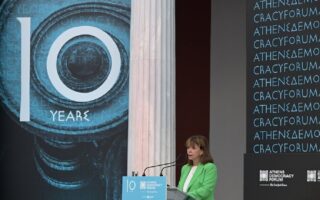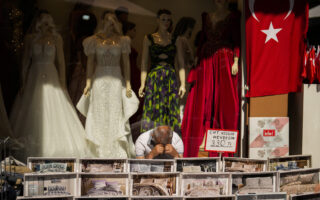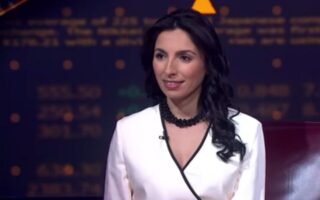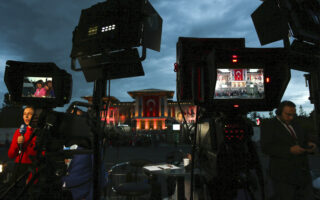The fateful clash between democracy and dangerous ideological and political fissures
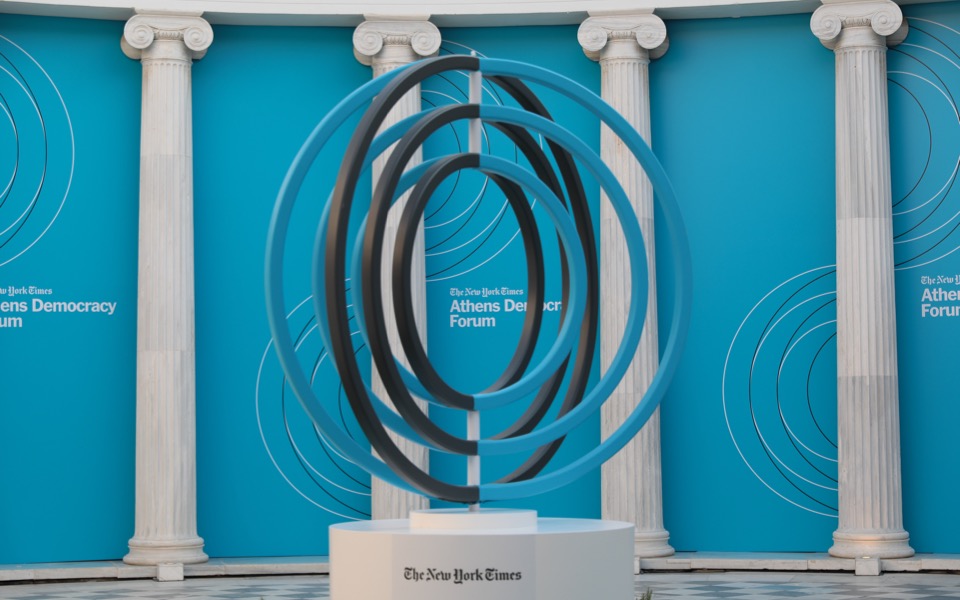
For the past decade, the Athens Democracy Forum (ADF) has been monitoring, analyzing, and seeking ways to defend and perpetuate the ideal of democracy. It serves as a reminder of the crucial institution of governance by and for the people, which, despite the challenges it faces, never fails to demonstrate remarkable resilience.
Especially in recent years, when the state of global governance seems rather discouraging, there is a significant need for a beacon of hope to illuminate the dark challenges and aid in progress. Although democracy made significant strides in the 20th century, particularly after the end of the Cold War, there is an urgent need for further development.
These issues, along with sociopolitical developments on the international stage, such as the ongoing conflict between Russia and Ukraine, protests in Iran against injustices, and the critical issue of the climate crisis, are expected to be central themes of the 11th Athens Democracy Forum.
The fundamental principle of democracy is confronted by dangerous ideological and political rifts that have emerged worldwide. Many believe that conflict is inevitable concerning the future of democratic governance and fundamental freedoms. Therefore, discussion is necessary.
From September 27 to 29, politicians, policy makers, academics, activists and young individuals will come together to discuss and explore possible ways to address these issues. Among them will be Jutta Urpilainen, European commissioner for International Partnerships; Nick Clegg, president of Global Affairs at Meta; Irina Bokova, former director-general of UNESCO and chair of the Democracy and Culture Foundation; Jorge Quiroga, former president of Bolivia; Caroline Gaita, executive director of the Mzalendo Trust; Royal Hansen, vice president of Privacy, Safety and Security Engineering at Google; Laura Thornton, senior vice president of Democracy at the German Marshall Fund; and Lia Papazoglou, co-founder of Ecogenia.
One of the topics that speakers will analyze is how democracies can become more resilient. Collaboration and support from all sectors are required. Based on the current geopolitical landscape, the definition of “cultural states” in relation to Western values will be explored.
Additionally, various studies concerning the future of democracy, both in the developed world and in developing countries, will be presented, including a study on Africa. According to this specific study, by 2050, one in four people on Earth will be African, and by 2100, 13 of the world}s 20 largest urban areas will be in Africa. Despite perceptions of corruption and poor governance in African states, reports indicate positive signs of progress in human rights and media freedom.
Similarly, the coexistence of China and the United States is a pressing issue. The future of the world seems to depend on the intentions of these two giants of the global economy, which will either coexist in harmony or head towards war, according to research.
Furthermore, the forum will address the issue of climate change, considering the challenges Greece faced during the summer, first with wildfires and then with the devastating floods. Our planet is showing us in every way that things are changing, while dictatorial governments from around the world are gaining ground. According to the World Bank, hundreds of millions of people will be forced to leave their homes by 2050 due to the climate crisis. Residents of developing countries are four times more likely to face this problem, as reported by the United Nations. Therefore, the cooperation of states, especially developed ones, is deemed essential.
Among the issues threatening democracy, technological advancements cannot be overlooked. For years, various analysts have expressed fears that cyberattacks could lead to a real war. However, this approach ignored the more insidious aspects of cyber-threats – to economies, infrastructures and the very nature of trust. Artificial intelligence and the power it can acquire is an emerging issue.
In the past year, artificial intelligence has made a significant leap forward. AI production tools can now essentially do everything, raising the question of how far they can go. Yann LeCun, chief AI scientist at Meta, warns of the danger that these tools can become smarter than us.
Speakers from Microsoft, Google and Meta will analyze the role of artificial intelligence in a wide range of areas at the conference, offering an intriguing perspective on the future.
